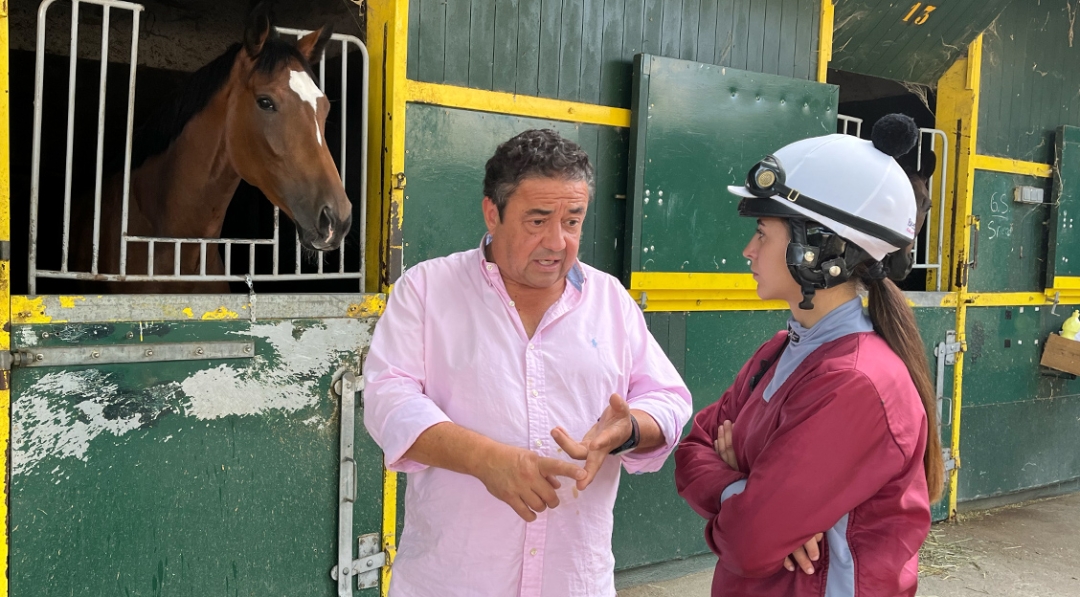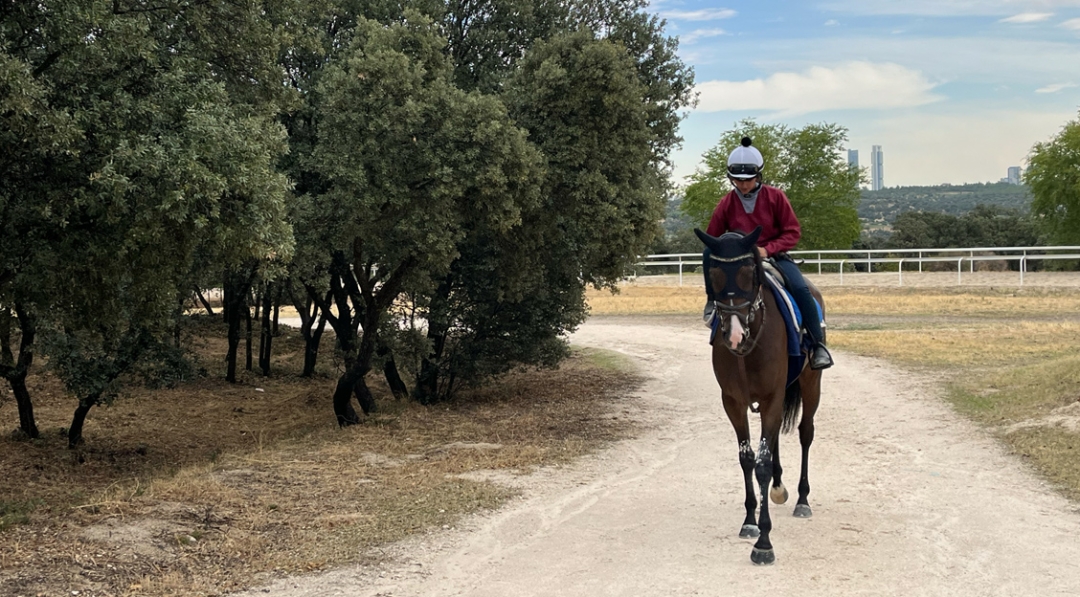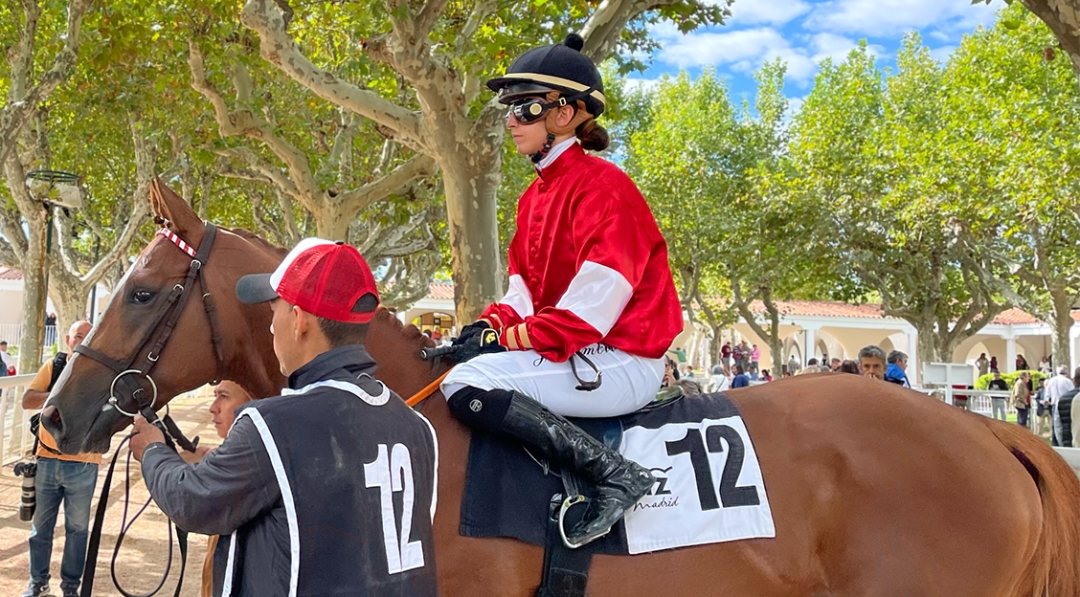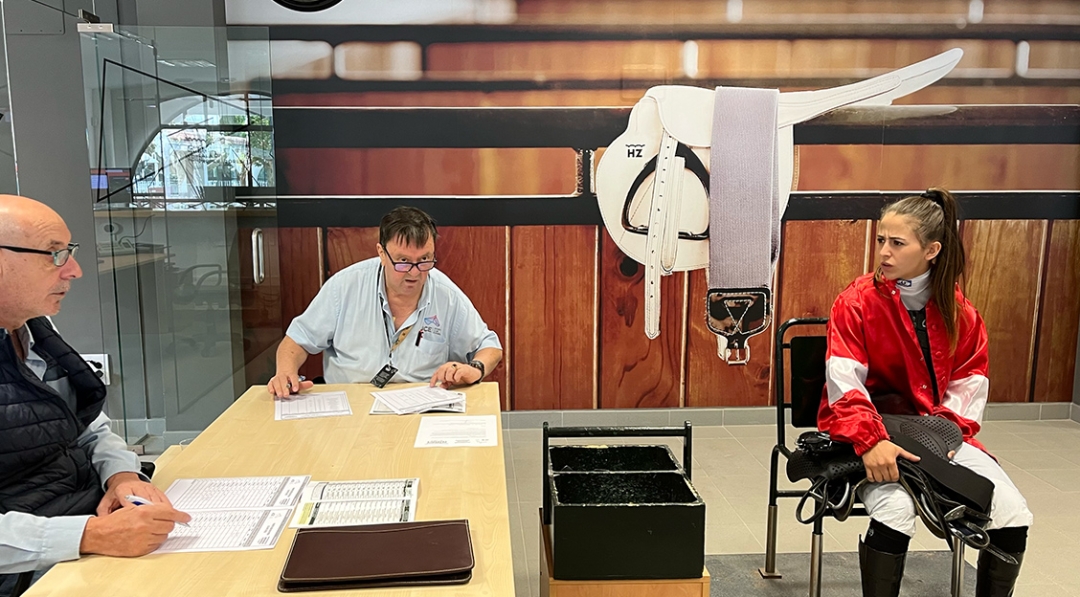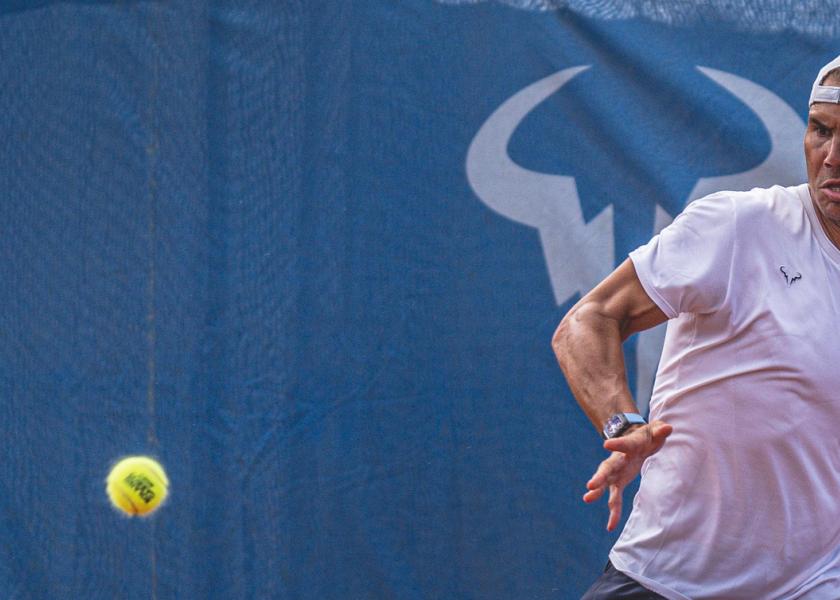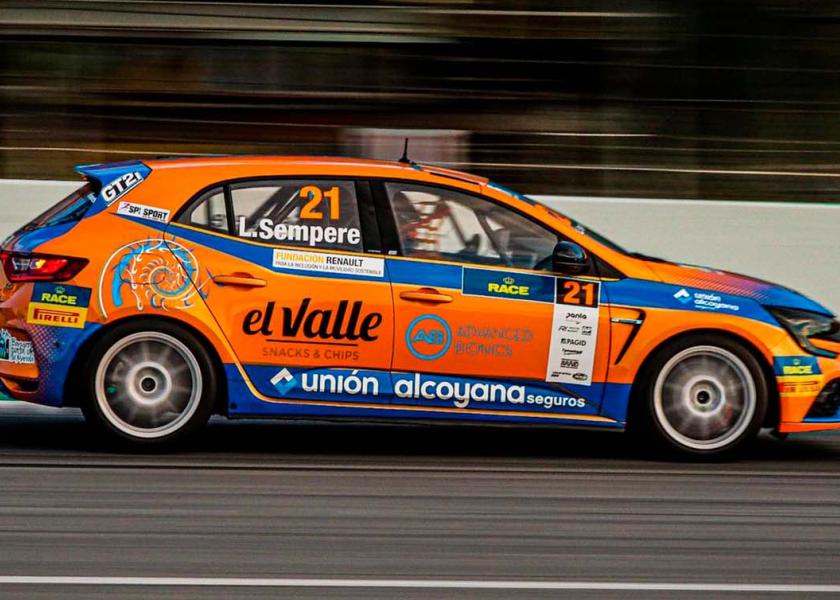Julia Zambudio
Giddy-up!
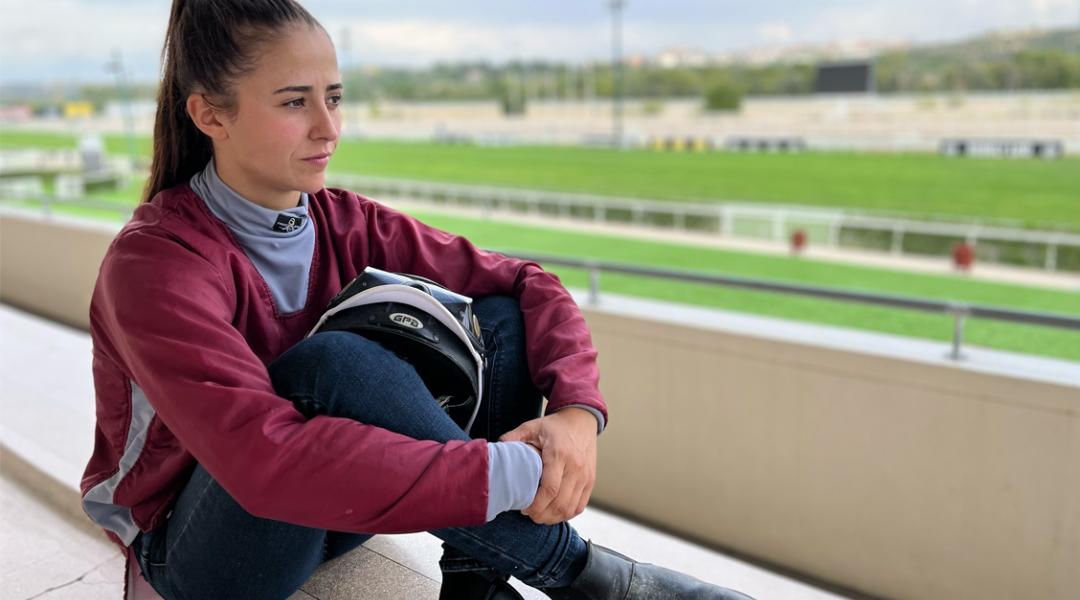
Slight, direct and serious until she smiles, this jockey goes around the Hipódromo de la Zarzuela in Madrid in the same way she does practically everything: by making a beeline for the finish line without pause. Julia Zambudio is the big surprise of this season on the Spanish racetrack, a woman who takes this opportunity by following two premises: keeping her feet on the ground and enjoying every moment.
She was probably eight years old the first time she got on a horse, explains Julia Zambudio (Laredo, 1999). “From that first moment I knew this was what I wanted to do —she tells us—. I didn’t even know how to hold the reins and I was already galloping. Less than a year later I was already doing pony races.” She tells this story whilst carrying a mount, head stall, brushes, blankets, and bandages for the first horse she’ll ride this morning. It’s 5:15 a.m., still dark, and her trainer Christian Delcher has already planned the day ahead for the different horses and jockeys that train at his stable.
This is the often-unseen part, the backstage of an equestrian discipline that, on many occasions, demands “months and months of preparation for a single race,” Julia declares. “There are horses —she continues— that race more often, but the good ones perhaps only compete twice or three times a year. The goal of all that prep work is for them to achieve perfect form.” The stables are abuzz with activity on a daily basis: jockeys, stable hands, trainers, vets, farriers… Different profiles surrounding an animal that is at the centre of everything.
“Every horse is different, each has their own personality, their own character… —explains the jockey—. Each one needs to be understood to reach their maximum potential and, above all, for them to give their all as the athletes that they are. That’s where the value of being a good trainer or a good jockey lies: in understanding what each horse needs at any given moment.” That’s the most beautiful part of this profession, she assures us: “Dealing with the animal daily, knowing that they have good and bad days, like anyone, and that during a race, a split-second decision can change everything.”
The 2022 season is treating this jockey well, with continuous victories at all the main national racecourses. “To work as a jockey, you need to be really passionate —she confirms—. It takes a long time to win the trust of trainers and owners, and you have to go through all the stages: work the stables, brush the horses… It’s a job that involves early starts, and never having any holidays. Races are held year-round, and the horses need to be taken out, have their breakfast, lunch, and dinner every day (smiles). I think that if you weren’t truly passionate about this, it wouldn’t be feasible.”
“The talent of a good jockey lies in understanding what each horse needs at any given moment”
Woman on the turf
Julia Zambudio has been working the stables since the age of 14, waiting for that chance that’s finally here. For her family, who had no prior experience in the equestrian world, her decision to dedicate herself to racing at such a young age generate, she explains, “a major concern because, as well as being difficult, it’s dangerous; but now they love it.” Part of the difficulty, she adds, lies in being a woman: “It’s the only sport in which men and women compete under equal conditions”. “Out of all the disciplines, the racecourse is perhaps the most physically challenging, and that’s why it’s been favoured by men, but in the last years women have also started showing themselves more,” she declares smiling.
Female jockeys like Julia Zambudio, Cristina Buesa, Vicky Alonso, Cristina Pérez, or Nieves García are names frequently included in programmes today and, above all, they’re achieving increasingly better results. For Julia, it’s a question of more and more work, of enjoying a thrilling profession and keeping “her feet on the ground” during victories. Talent? It exists, she assures us, but not only in the case of the jockey: “I think talent lies in being able to understand what these types of animals need at any given moment. In the end, they’re also athletes and their talent is competing at the level we demand of them in these kinds of races.”
This demanding level becomes crystal clear on race day, where the atmosphere is frantic both at the stables and the grounds of the main racecourse. Julia seems calm —this is where her northern character shines through—, but her face comes alive when we ask her: what do you do to relax?. “Me, relax?” she laughs.
